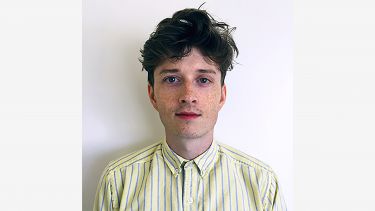Foundation Year helped me to learn good exam technique

What drew you to apply and accept a place on the Foundation Year?
After I finished college, I worked for around 3-4 years. I felt like this was a large time out of education and so didn’t feel confident that I would be able to keep up in a course like Aerospace Engineering.
What was your educational background before and what were the main concerns you had before embarking on the course?
I studied a BTEC Extended Diploma in Electrical and Electronic Engineering.
Due to a BTEC course being mainly coursework-based, I was very concerned about having to step into an environment where I would be taking multiple exams each semester.
How did FY help to prepare you for Year 1 study and beyond?
The modules taught in Foundation Year really cover everything you are expected to know in first year, and in some cases cover topics taught in first year, so in some modules I ended up being ahead.
Foundation Year also really helped me to learn good exam technique - before university, the last time I sat an exam was around 4 years prior.
What were the big learning points for you during your FY?
Learning in a lecture-based environment was probably the biggest skill I had to learn on the Foundation Year. It’s such a different way of learning compared to being taught in a classroom.
The student community in Sheffield really is one of the most welcoming communities I have been a part of
Aiden Jefferson
MEng Aerospace Engineering
What do you enjoy most about your current degree programme?
I now study Aerospace Engineering. I think the most enjoyable aspect of the course is that it’s a multi-disciplinary course. This means that it’s made up of modules from many other types of engineering (Electrical, Mechanical, Systems, etc).
It really allows you to learn about so many different areas in the engineering world and see how each discipline fits together with others when solving problems.
What are your favourite things about studying in Sheffield?
Sheffield is a smaller city than most, but I think it makes up for it in its strong sense of community. There are so many independent stores in Sheffield, which is always great to see.
I think there's something for everyone in Sheffield, no matter what it is you’re after. And that’s what I like about it - it’s a welcoming city.
What has the wider University offered you in terms of support and student community?
The student community in Sheffield really is one of the most welcoming communities I have been a part of. There are so many societies and extra-curricular clubs to get involved with.
The university also has a MakerSpace called the iForge, which I volunteer in; this has allowed me to meet many like-minded students in different departments of engineering.
How have you overcome challenges so far and what would be your advice to a prospective Foundation Year student?
I think the biggest part of an engineering degree is just perseverance. There’s going to be a lot of work, which is to be expected, and I think a lot of students get caught up on this.
I think my number one piece of advice would be to just try to keep as organised as you can, set yourself deadlines that fall short of the actual deadlines of your coursework, and honestly just keep a positive attitude and you’ll do more than OK.
What are your career aspirations after your degree?
After university, I think I’d like to go into systems engineering for aerospace applications. I am really interested in the automation of aircraft and would love a career in this area.

International undergraduate scholarships
We are offering scholarships of £2,500 for each year (subject to a 60% average) of your undergraduate degree. The maximum value is £10,000 for four-year programmes.

